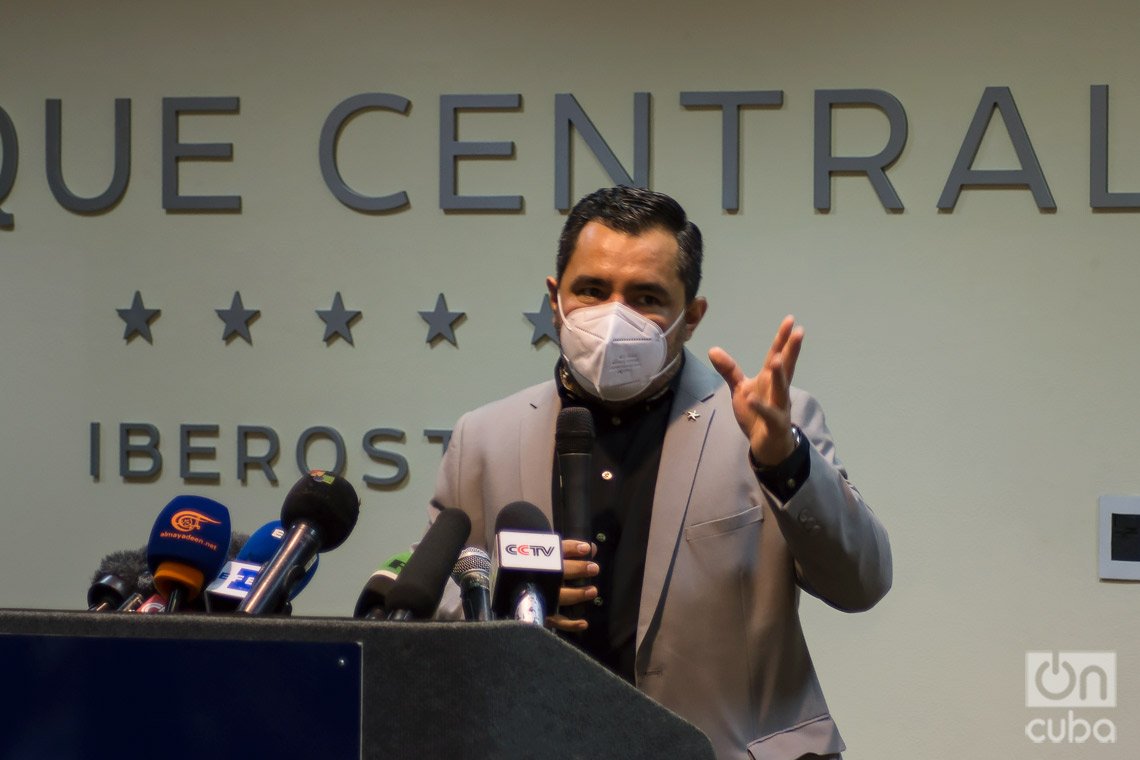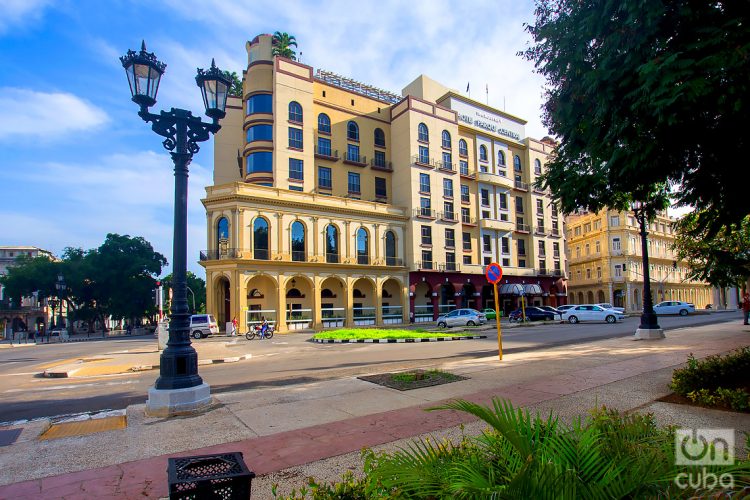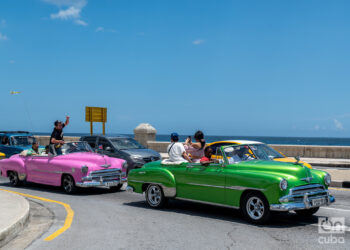The Spanish Iberostar hotel chain is seeking to promote Cuba as a tourist destination, in the face of the upcoming high season and the reopening of the Cuban borders next November after the impasse caused by COVID-19.
To do this, it announced the reopening of 16 of the 17 hotels it operates in the Caribbean country, as well as the inauguration of another in Cayo Cruz, in the northern keys of the island, in which emphasis will be placed on the quality and variety of the services and health measures to ensure the safety and comfort of guests.
Iberostar’s marketing director in Havana, Alexei Torres, told the press this Tuesday that the new stage will maintain the health protocols put into practice during the pandemic, which include limited capacity, reinforcement of protection measures, enhancement of activities in open spaces and online interaction mechanisms, and the presence of a medical and epidemiological team in each hotel.
Travelers, for their part, must comply with the requirements recently announced by the Cuban authorities and that will be applied as of mid-November, which make border protocols more flexible, although they require visitors to present a certificate of vaccination against coronavirus or a negative PCR upon arrival on the Island.
Tourists will have to be vaccinated or have a negative PCR upon arrival in Cuba
Torres explained that the hotel facilities have been renovated and prepared for the new season following sanitary requirements, and are launching a wide variety of services for different population groups and tourism modalities with the aim of providing high quality and internationally competitive offers, especially in the region.
As part of Iberostar’s novelties in Cuba for the current season, Torres announced the opening of the Coral Level Esmeralda Hotel in Cayo Cruz, in the Jardines del Rey archipelago, and the start of World2Fly airline flights, belonging to the hotel chain, to connect Madrid and Havana.
With these proposals, Iberostar joins the also Spanish Meliá, which will also reopen its hotels in Cuba in November, when the massive vaccination against COVID-19 in the Caribbean country is expected will be in advanced stage.
The company has been managing hotels since 1993 in Havana, Cayo Largo del Sur, Varadero, Trinidad and the northern keys of the central provinces Villa Clara and Ciego de Ávila. It operates, together with the Meliá and Barceló companies, 70% of the rooms in state hotels on the island through management contracts.

Cuba suspended commercial and charter flights in April 2020 to curb the expansion of the coronavirus and in October of that year it reopened the airports, but with a minimal reduction in flights from the United States, Mexico, Panama, Bahamas, Haiti, the Dominican Republic and Colombia. Tourist activity, for its part, has been concentrated since then mainly in Cayo Coco and Varadero.
Before the pandemic, tourism represented for Cuba the second official source of foreign currency income only behind the sale of professional services abroad and contributed around 10% of the Gross Domestic Product (GDP).
According to the sector’s authorities, from January 1 to August 31 of this year, only 163,743 international visitors entered the country. This means 2,960,000 fewer tourists than in the same period of 2019, and 824,000 less than in the first eight months of 2020, with its corresponding monetary impact in pandemic circumstances.
EFE/OnCuba











I am 86 years old but mobile and in good general health but cannot support sustained physical activity beyond a certain point. I was a frequent visitor to Santa Lucia with friends in the past, but in the event that I cannot return to that area I would be interested in investing in expert Cuban medical help (if needed) . I will bring a bicycle for exercise and donate it to the Island.
Please let me know details nd if my age (above 85) is a factor. I am on bone density and high blood pressure medication.
John Darling